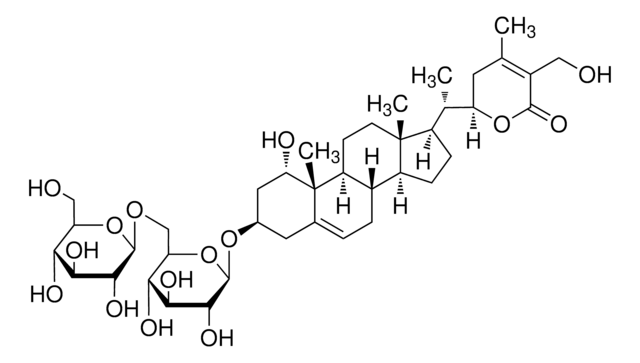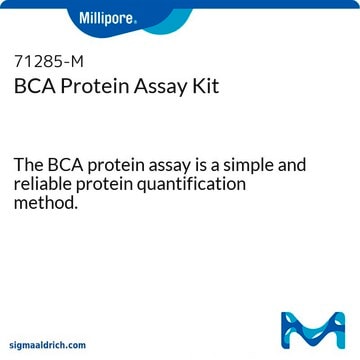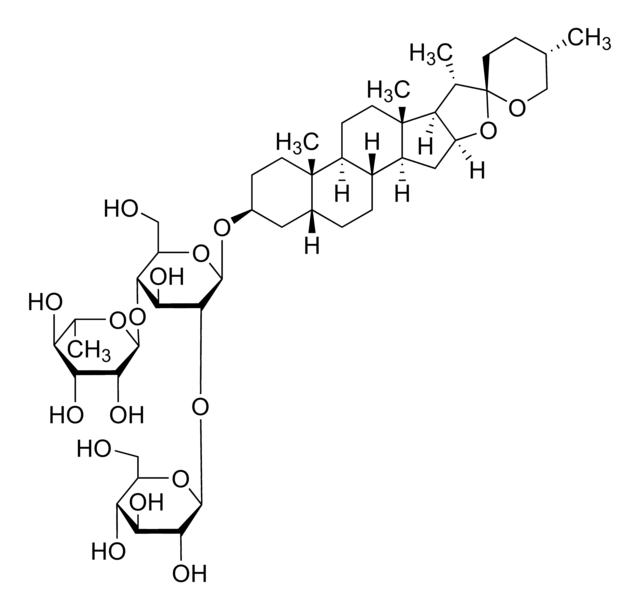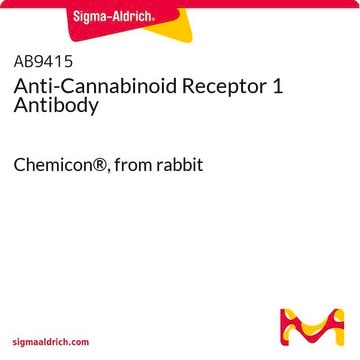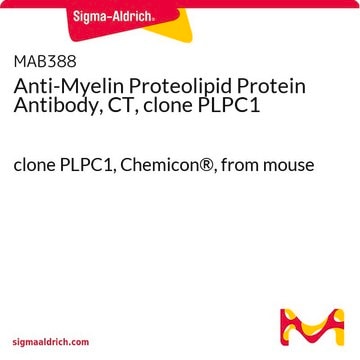推荐产品
生物源
mouse
品質等級
抗體表格
purified antibody
抗體產品種類
primary antibodies
無性繁殖
2D11, monoclonal
物種活性
bovine, rat, mouse, human
技術
immunohistochemistry: suitable
western blot: suitable
同型
IgG2bκ
NCBI登錄號
UniProt登錄號
運輸包裝
wet ice
目標翻譯後修改
unmodified
基因資訊
human ... VSNL1(7447)
一般說明
The protein VSNL1, Visinin-like protein 1 (VILIP, or VLP-1), or Hippocalcin-like protein 3 (HLP3) and encoded by the gene VSNL1/VISL1, is a calcium sensor protein that regulates calcium signaling pathways in neurons. In the retina VSNL1 regulates the inhibition of rhodopsin phosphorylation. VSNL1 is expressed specifically in the brain (and is particularly strong in the granule cells of the cerebellum), retina and PNS. VSNL1 levels are up regulated in Alzheimer′s disease but the significance is unknown at present. VSNL1 belongs to the recoverin family of neuronal specific proteins. Interestingly, new research seems so argue that VSHL1 can also be expressed by non-neuronal cells such as epidermal cells and may play a role as a tumor suppressor gene in squamous carcinoma cells and skin cancer.
免疫原
Recombinant protein corresponding to human VSNL1.
應用
Detect VSNL1 using this Anti-VSNL1 Antibody, clone 2D11 validated for use in western blotting & IHC.
Western Blotting Analysis: 0.5 µg/mL from a representative lot detected VSNL1 in 10 µg of human cerebellum, rat brain, and mouse cerebellum tissue lysate.
Immunohistochemistry Analysis: A representative lot detected VSNL1 in rat cerebellar cortex tissue (courtesy from the laboratory of Gerry Shaw).
Immunohistochemistry Analysis: A representative lot detected VSNL1 in rat cerebellar cortex tissue (courtesy from the laboratory of Gerry Shaw).
品質
Evaluated by Western Blotting in mouse brain tissue lysate.
Western Blotting Analysis: 0.5 µg/mL of this antibody detected VSNL1 in 10 µg of mouse brain tissue lysate.
Western Blotting Analysis: 0.5 µg/mL of this antibody detected VSNL1 in 10 µg of mouse brain tissue lysate.
標靶描述
~22 kDa observed
外觀
Format: Purified
Purified mouse monoclonal IgG2bκ in buffer containing PBS with 0.05% sodium azide.
其他說明
Concentration: Please refer to the Certificate of Analysis for the lot-specific concentration.
未找到合适的产品?
试试我们的产品选型工具.
儲存類別代碼
10 - Combustible liquids
水污染物質分類(WGK)
WGK 2
閃點(°F)
Not applicable
閃點(°C)
Not applicable
Juilee Rege et al.
Journal of the Endocrine Society, 4(10), bvaa123-bvaa123 (2020-10-10)
Somatic mutations driving aldosterone production have been identified in approximately 90% of aldosterone-producing adenomas (APAs) using an aldosterone synthase (CYP11B2) immunohistochemistry (IHC)-guided DNA sequencing approach. In the present study, using CYP11B2-guided whole-exome sequencing (WES) and targeted amplicon sequencing, we detected
Jessica E Baker et al.
Molecular and cellular endocrinology, 530, 111296-111296 (2021-04-30)
Adequate access to fresh or frozen normal adrenal tissue has been a primary limitation to the enhanced characterization of the adrenal zones via RNA sequencing (RNAseq). Herein, we describe the application of targeted RNAseq to formalin-fixed paraffin-embedded (FFPE) normal adrenal
Kazutaka Nanba et al.
Frontiers in endocrinology, 15, 1286297-1286297 (2024-03-20)
Double somatic mutations in CTNNB1 and GNA11/Q have recently been identified in a small subset of aldosterone-producing adenomas (APAs). As a possible pathogenesis of APA due to these mutations, an association with pregnancy, menopause, or puberty has been proposed. However
Vivek Swarup et al.
Nature medicine, 25(1), 152-164 (2018-12-05)
Identifying the mechanisms through which genetic risk causes dementia is an imperative for new therapeutic development. Here, we apply a multistage, systems biology approach to elucidate the disease mechanisms in frontotemporal dementia. We identify two gene coexpression modules that are
我们的科学家团队拥有各种研究领域经验,包括生命科学、材料科学、化学合成、色谱、分析及许多其他领域.
联系技术服务部门


